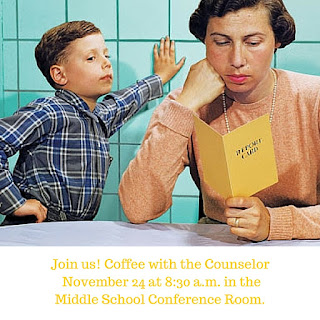What kind of grades did you get in
school? Mine were decent. Although, most of my grades I don’t remember
at all. What I do remember is the
relationships I had with some of my teachers, lots of my friends, and, of
course, the way I felt about my relationship with my parents. Now that I have a career, the grades I had in
middle school and high school feel so irrelevant. But some of the relationships I had with
teachers are still quite relevant and always will be.
Although I don’t know what my actual grade was in English my
sophomore year, I will never forget the day my teacher pulled me aside to tell
me how much she really liked a poem I had written. I felt so incredibly capable, and so
smart. As a result, I wanted to keep
writing!
I also recall a quiet conversation with my Spanish teacher about
my failing grade. Somehow I walked away
feeling like I wasn’t dumb. Nor did I
feel like anyone thought I wasn’t trying hard enough. I concluded that Spanish
was just hard and I was going to have to take it again to conquer it.
Then, of course, there are the friendships. Although I have no idea what name and what
particular comment belong to which memory, I sure do know how I felt about the
way certain kids acted around me and made me feel.
All of these were so much more important to me than
grades. My grades were important, but I
really didn’t need my parents harping on me if I made a B or an A on an
assignment. What I wanted, and needed,
was for the adults in my life to recognize and value everything in my
adolescent world other than just the grades.
I try to do that for my kids. Sometimes I think they find me intrusive, but
I keep trying. I keep trying to send
the message that no matter what their grades are, they need to keep their focus
on being kind to others and trying their best.
I want them to try their best in relationships, as well as academics. Character speaks volume for a person and
never goes away. I so desire for my
children to develop character that speaks largely about who they are. When they are adults, I hope they look back
and remember that I nagged them about things that were important, and I hope
they always find that relevant.
What are your memories of school, grades, friendships and
teachers? How can you make the most of
your memories in empathizing with your child and helping them along the path to
success?
*Join the conversation.
Please come to our Coffee with the Counselor discussions in the Middle
School. Our next meeting is November 24 at 8:30 a.m. in the Middle School Conference Room.


